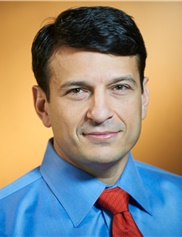Grants We Funded
Grant applicants for the 2023 cycle requested a total of nearly $4 million dollars. The PSF Study Section Subcommittees of Basic & Translational Research and Clinical Research evaluated nearly 140 grant applications on the following topics:
The PSF awarded research grants totaling over $1 million dollars to support nearly 30 plastic surgery research proposals.
ASPS/PSF leadership is committed to continuing to provide high levels of investigator-initiated research support to ensure that plastic surgeons have the needed research resources to be pioneers and innovators in advancing the practice of medicine.
Research Abstracts
Search The PSF database to have easy access to full-text grant abstracts from past PSF-funded research projects 2003 to present. All abstracts are the work of the Principal Investigators and were retrieved from their PSF grant applications. Several different filters may be applied to locate abstracts specific to a particular focus area or PSF funding mechanism.
Improved Ischemic Flap Survival Using Oral HMG-CoA Reductase Inhibitors
Babak Mehrara MD
2006
Memorial Sloan-Kettering Cancer Center
Basic Research Grant
General Reconstructive
Partial or complete flap loss can have devastating consequences during reconstructive and cosmetic surgery. The incidence of these complications may be related to comorbid factors such as obesity, smoking, and prior history of radiation therapy. Although a number of techniques have been developed to address this issue, to date, no non-invasive measures have been proven effective. Recently, a number of studies have demonstrated that administration of culture expanded endothelial progenitor cells (EPCs) is capable of improving ischemic flap survival. The circulating concentrations of these cells can be manipulated using commonly available oral medications such as statins. Statins (eg. simvastatin) have been used effectively in millions of patients for cholesterol reduction. However, recent studies have shown that these medications also increase circulating EPC levels 2 to 3 fold. In addition, treatment with statins has been effective in diminishing neointimal hyperplasia in a carotid artery injury model. Therefore, the purpose of these studies is to evaluate the effect of presurgical treatment with statins on ischemic flap survival. This will be performed using the following specific aims: 1. Evaluate effect of oral statin therapy on concentrations of circulating EPCs in mice. In this specific aim we will identify the optimal dose and timing of oral simvastatin on mobilization of bone marrow derived PCs. 2. Evaluate the effect of oral statin therapy on ischemic flap healing in mice. This specific aim will assess the effects of oral Simvastatin on ischemic flap survival using the optimal oral dose identified in specific aim 1. 3. Demonstrate that alterations in ischemic flap survival are due to bone marrow stimulation. In this specific aim we will demonstrate that statins augment EPC production by changes in bone marrow production of these cells. In addition, we will track the newly formed EPCs to the wound bed using transgenic animals.
 Dr. Mehrara is a graduate of Columbia University College of Physicians and Surgeons. He completed his Plastic Surgery Residency at New York University Medical Center followed by microsurgical fellowship at UCLA Medical Center. Dr. Mehrara’s laboratory research is focused on the etiology of lymphedema and deleterious effects of radiation therapy. These fields are intimately related since radiation therapy is a significant risk factor for lymphedema. His recent research has demonstrated that the pathological findings associated with radiation therapy are related in large part to the depletion and dysfunction of resident tissue stem cells and that targeted protection of these cells can decrease tissue injury.
Dr. Mehrara is a graduate of Columbia University College of Physicians and Surgeons. He completed his Plastic Surgery Residency at New York University Medical Center followed by microsurgical fellowship at UCLA Medical Center. Dr. Mehrara’s laboratory research is focused on the etiology of lymphedema and deleterious effects of radiation therapy. These fields are intimately related since radiation therapy is a significant risk factor for lymphedema. His recent research has demonstrated that the pathological findings associated with radiation therapy are related in large part to the depletion and dysfunction of resident tissue stem cells and that targeted protection of these cells can decrease tissue injury.